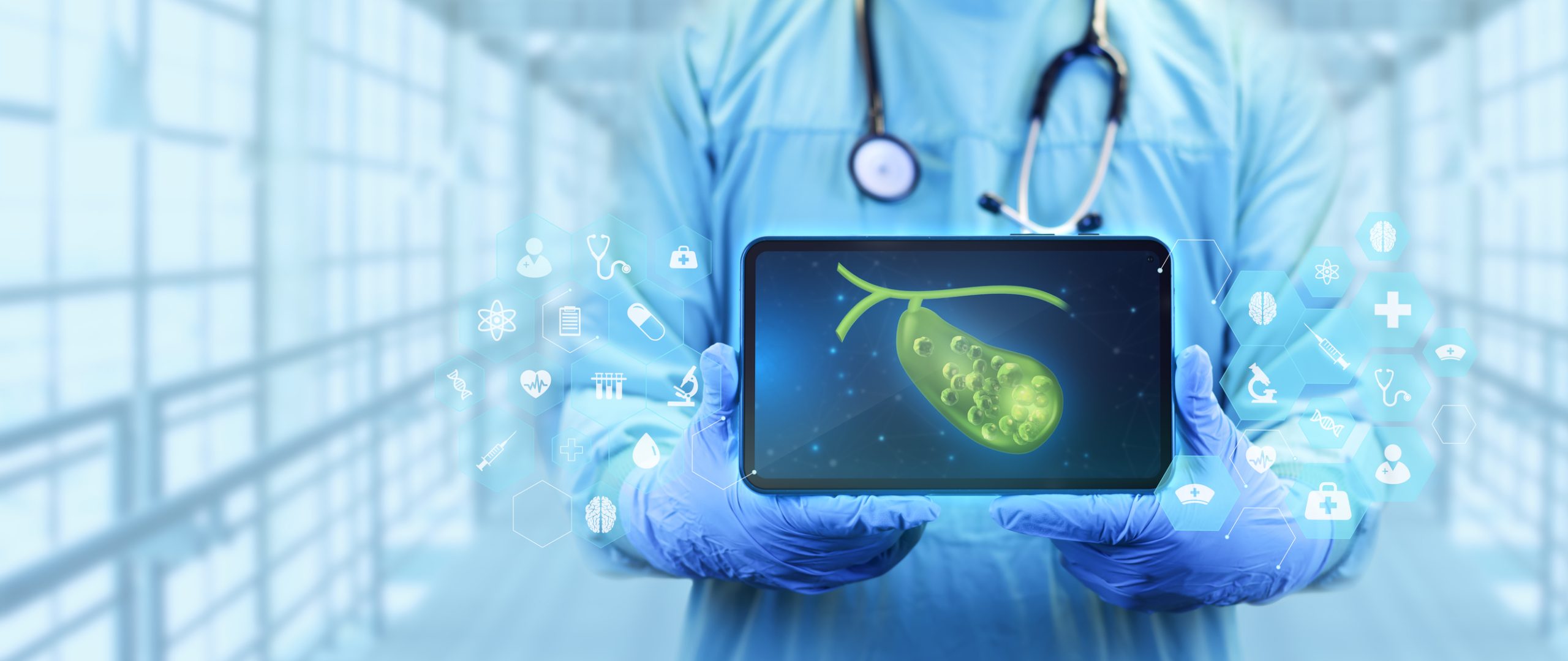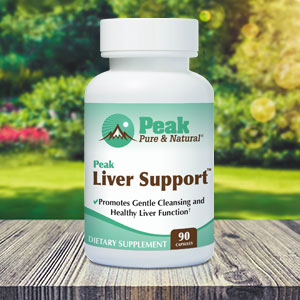Get Easy Health Digest™ in your inbox and don’t miss a thing when you subscribe today. Plus, get the free bonus report, Mother Nature’s Tips, Tricks and Remedies for Cholesterol, Blood Pressure & Blood Sugar as my way of saying welcome to the community!
For a happy liver and digestion, balance your bile

When it comes to staying healthy, I’m betting that bile isn’t the first thing that comes to mind… if you even think of it at all.
Maybe you don’t even know what it is. Where it comes from… where it lives in your body… or why it’s even important?
So just in case you’re in the dark, I’d like to offer you a “primer.” Then I’ll tell you about some new research on bile production and how you can help this fluid work harder to keep you healthy.
What is bile and what’s its job?
It’s an olive green or brownish-yellow fluid that’s produced by your liver and stored in your gall bladder. Its job is to help absorb fats and fat-soluble nutrients, such as Vitamins A, D, E and K.
When you eat fatty foods, your gall bladder releases bile into the small intestine through a series of tubes, or ducts, where it mixes with partially digested food. Bile salts and other substances break down fat globules into smaller droplets. These droplets are easier for the digestive enzymes in your intestines to break down and absorb.
Sounds simple, right? But your body needs just the right amount of bile to accomplish this task healthfully — not too little and not too much.
When there’s too much: Bile acid malabsorption
Bile acid malabsorption (BAM) occurs when the colon can’t reabsorb unused bile after digestion takes place.
In some cases, there’s no clear explanation for why the colon doesn’t fully reabsorb bile acids. When this happens, it’s called primary BAM.
But BAM can also be a symptom of another condition. This is referred to as secondary BAM.
Conditions where BAM is a secondary symptom include irritable bowel disease, Crohn’s disease and celiac disease.
The main symptoms of BAM are bloating and diarrhea.
How your liver can poison itself
Bile is crucial for proper absorption and digestion of fats and vitamins necessary for maintaining health.
But too much can be toxic for the liver.
Three scientists from the University of Oklahoma have been working to better understand how its overproduction can poison the liver.
Their evidence suggests that bile acid imbalances may contribute to the development of non-alcoholic fatty liver disease (NAFLD). NAFLD is dangerous not only because it can lead to total liver failure if it progresses, but because it is a risk factor for coronary artery disease.
Overproduction of bile can also contribute to a condition known as cholestasis, the slowing or stalling of bile flow through your liver, gall bladder, and bile ducts. Bile that can’t flow leaks into your bloodstream and backs up into your organs, causing inflammation.
6 simple ways to support healthy bile flow
Here are six simple things you can do to keep your bile flowing smoothly.
1. Stay hydrated. Water ensures it stays thin enough to flow easily; electrolytes are required for the opening and closing of valves that allow bile flow. Especially in summer, make sure you’re drinking 2-3 liters 8-12 cups of water or sugar-free electrolyte drinks per day.
2. Eat bitters. Bitter foods like beets, artichokes, dandelion greens, and arugula stimulate bile flow by increasing cholecystokinin, a hormone that triggers gall bladder contraction.
3. Glycine and taurine. Glycine and taurine are amino acids essential for the production of bile. They can be taken as supplements, but are also found in bone broth, fish, shellfish, seaweed and poultry and eggs.
4. Eat fats but choose wisely. Eating fats is essential for triggering bile release. Stick to healthy fat sources like olive oil, cold-water fish, avocados, almonds, walnuts, and seeds.
5. Identify trigger foods and stop eating them. Avoid fast and processed foods and sugars, which all increase liver inflammation. Food allergies and sensitivities can also cause gallbladder issues. Identifying these foods and removing them from your diet can support healthy bile flow.
6. Support your liver. Your liver is responsible for over 500 vital functions, and it gets bogged down doing its main job, removing toxins from your bloodstream. Detoxing helps take some of that load off the liver and can help improve its functionality.
Editor’s note: Did you know that when you take your body from acid to alkaline you can boost your energy, lose weight, soothe digestion, avoid illness and achieve wellness? Click here to discover The Alkaline Secret to Ultimate Vitality and revive your life today!
Sources:
Balancing act between digestion and liver health through bile acids — Eureka Alert
Bile acids regulation of cellular stress responses in liver physiology and diseases — eGastroenterology
Understanding Bile Acid Malabsorption — Healthline














